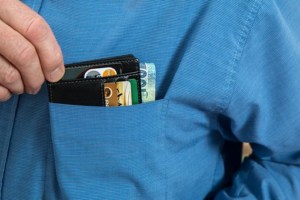Declaring bankruptcy lets you get back up on your feet after financial hardship due to medical bills, credit card debt, and student loans, among others. After bankruptcy, you’ll need to begin rebuilding your credit. One way to do this is to acquire a credit card to work on your creditworthiness.
In this article, we’ll talk about frequently asked questions regarding credit cards after bankruptcy, as well as some tips to make sure the credit card helps you get a good credit score. If you have any questions about life after bankruptcy, it’s best to talk to our experienced Pasadena bankruptcy attorney.
Overview about Credit Cards after Bankruptcy Discharge
How does a credit card help rebuild credit?
Every transaction you make in a credit card should be reported to the three major credit bureaus: TransUnion, Equifax, and Experian. If you consistently use your credit card responsibly, your report should reflect a history of positive credit movements, which will improve your score over time, slowly but surely.
Can I get a credit card approved after bankruptcy?
A Chapter 13 reorganization bankruptcy stays on your credit report for seven years while a Chapter 7 liquidation bankruptcy stays for ten years. It may be difficult to get a credit card in this period, but it’s not impossible.
How soon following bankruptcy should I apply for a credit card?
 It’s possible to apply almost immediately after bankruptcy. However, you have to be realistic: you may only qualify for certain kinds of credit cards. You may want to consider a secured credit card. These require a deposit as collateral, but it’s much easier to get approved for these kinds of credit cards.
It’s possible to apply almost immediately after bankruptcy. However, you have to be realistic: you may only qualify for certain kinds of credit cards. You may want to consider a secured credit card. These require a deposit as collateral, but it’s much easier to get approved for these kinds of credit cards.
These questions cover people’s common concerns about getting credit cards after bankruptcy. If you have any more questions, it’s best to ask a skilled Pasadena bankruptcy lawyer.
3 tips for using credit cards after bankruptcy
It takes time, dedication, and discipline to improve your credit after bankruptcy. If you live within your means and use your new credit card responsibly, you’ll build up positive information in your credit history and improve your credit score.
Here are three things you can do to maintain a positive credit history.
Build an emergency fund.
Set up an emergency fund for emergencies. If you created a budget during a pre-bankruptcy credit counseling session, that could be a good place to start. Consider a savings account where you can deposit money to take out unexpected costs, like medical expenses. Review your credit reports regularly to check for any errors. Dispute them as soon as you spot them.
Keep your credit card balance low.
Credit utilization rate is an important factor in your credit score. It’s determined by how much credit you’re using concerning the limit the credit card issuers have given. Keep your credit well below the limit to lower your credit utilization rate. In general, it’s best to keep it below 30%.
Pay off your accounts on time.
Credit history is another important factor in your credit scores. If you miss a payment deadline, your credit score will take a tremendous dip. Pay your bills on time and avoid the negative effect on your credit score, along with late payments, high interest, and higher APR (annual percentage rate) that come with late payments.
Final Thoughts
People are afraid of filing for bankruptcy because of the damage it does to their credit scores. However, bankruptcy protection can offer you a reprieve from the mounting student loan debt, credit card debt, and medical debt. If you file for bankruptcy, the court places an automatic stay to shield you from collection agencies and a significant portion of your debt gets discharged, meaning you won’t have to repay them.
After personal bankruptcy, you can build your credit over time and obtain a good FICO score with hard work and effort. Although it may have been credit card debt that got you to declare bankruptcy, responsible use of a credit card can get your score back up, putting you on your way to a secure financial future. We here at Law Offices of Daniela Romero can help you deal with your tax problems and financial problems. Call our Pasadena bankruptcy law firm now to discuss your options!
